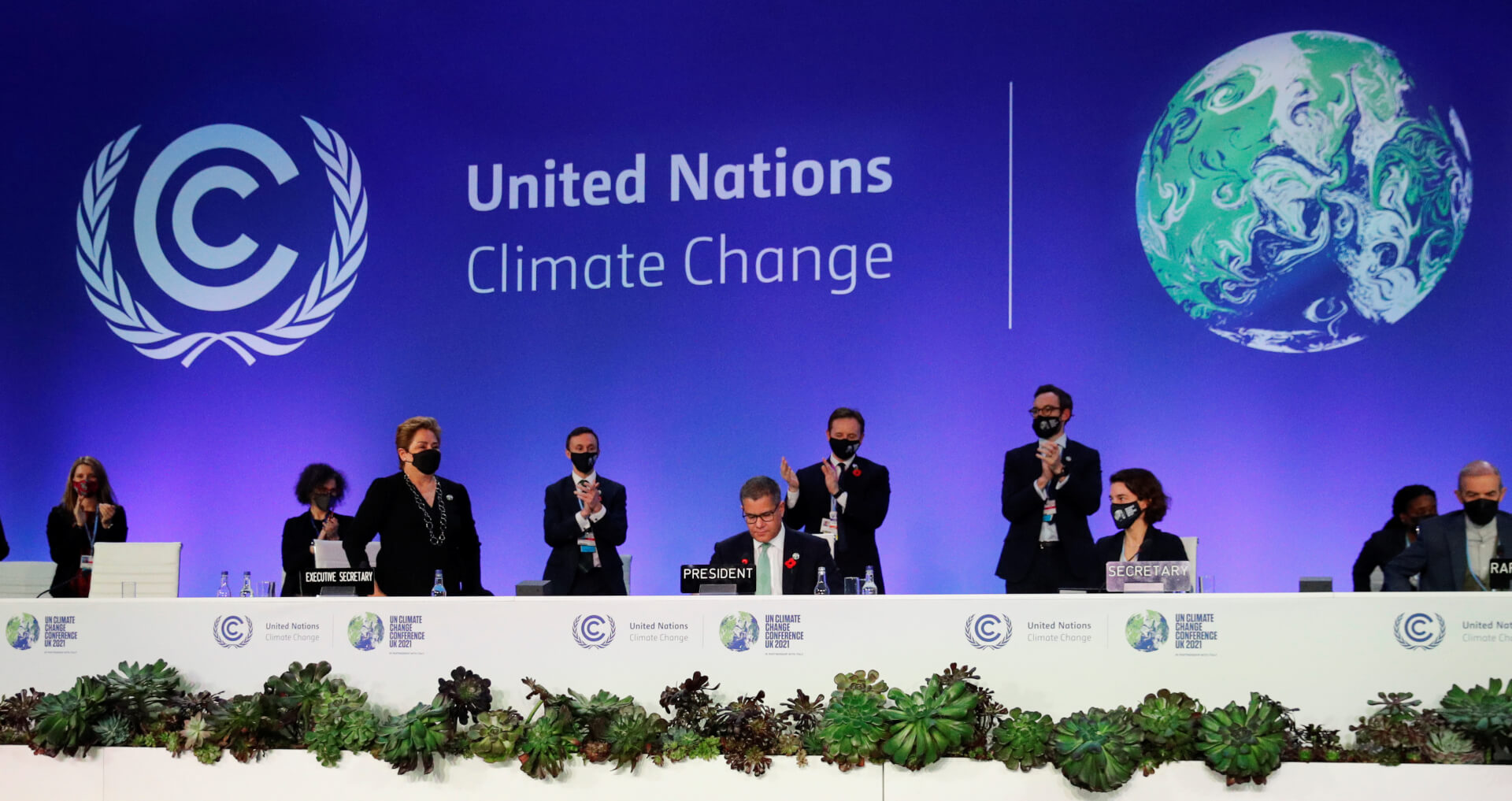Over 200 countries adopted the climate agreement signed at the COP26 summit in Glasgow on Saturday. However, the final text of the deal has been criticised for merely committing to “phase down” of the use of fossil fuels, a change suggested by India, instead of completely phasing them out.
On Wednesday, a draft agreement set ambitious goals on global commitment towards climate action and was celebrated by several environmental activists for recommending a conclusive end to the use of fossil fuels. However, India, on behalf of other developing counties including Brazil and South Africa, opposed the proposal, arguing, “We feel that there is a need for balance between the finance and mitigation sections.” It posited that while it accepts the need to “limit the temperature increase to 1.5 °C,” the draft document did not provide enough impetus to climate finance.
In particular, India expressed its objection towards the singling out of coal. “Developing countries should actually be able to use their fair share of the global carbon budget and they should be provided with finance, technology transfer and capacity for a just transition in the context of their sustainable development and eradication of poverty,” it said.
India was backed by Bolivia, which spoke on behalf of Like Minded Developing Countries, a group of 24 countries that collectively account for around 50% of the world’s population. Bolivia’s representative said, “The documents have a very mitigation centric approach. There is a lot of emphasis on processes, procedures, in the context of mitigation. But we don’t see the same approach in other sections of the draft text such as in loss and damage.”
In addition, the Indian representative also criticised the text for ignoring the historical contributions to emissions that have caused global warming today, emphasising on the need to commit to the principle of “Common but Differentiated Responsibilities and Respective Capabilities.”
These concerns ultimately forced in a last-minute change to the final agreement that was eventually accepted by 200 countries. India subsequently applauded the text for successfully accounting for the concerns of the developing world. Indian Environment Minister Bhupender Yadav, who led the delegation in Glasgow, said that developing nations’ “concerns and ideas” were articulated “succinctly and unequivocally.” This was a reference to the change in the agreement that called for a mere “phasing down” of the use of coal, rather than “phasing out” its use.
However, several countries criticised India’s suggestion for watering down the agreement by suggesting a “phasing down” of coal, given that coal has been identified to be the largest contributor to greenhouse gas emissions.
To this end, COP26 President Alok Sharma called on China and India to “justify” their demands to water down the agreement to countries that are more vulnerable to climate change. He nonetheless celebrated the agreement, describing it as a “historic achievement” that still keeps the 1.5°C target within reach.
British Prime Minister Boris Johnson also expressed his discontent with the inability of countries to agree to a complete phasing out of coal power, noting that his “delight” for the “truly historic” agreement was “tinged with disappointment.”
That being said, Indian climate experts have said that the change in the agreement was necessary, specifically to protect the financial interests of lower-middle-income countries that continue to struggle with poverty. They have also hailed the agreement for being a step in the right direction towards reducing dependency on coal power.

